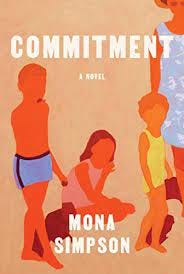I am back in my house after a week in the lemony sun of California where I heard Joni Mitchell’s voice singing California, California, I’m coming home as a very beautiful ear worm the whole time I was there. I missed the rains and arrived when everything was a glowy green, the plants plump and sated, the people friendly and happy to be outside again. I love California. Lots of good vegan food, warm weather, beautiful vistas. I have always wanted to go to Ojai and did. I could easily live there. It’s in a valley that runs east-west rather than north-south which is apparently a singular occurrence, I wouldn’t know the difference, but I did instantly feel a spiritual vibe. I could look at those mountains all day every day. Isn’t it funny when you arrive in a new place and you’re immediately introduced to a local wonder you can’t live without? You’ve never heard of it before but suddenly it’s the most important thing on your schedule. In Ojai it’s the pink moment. As the sun is setting, there is a brief time when the mountains turn pink. The first day I wasn’t sure I was seeing what I was meant to be seeing, and how true is that of so much in life, but on successive days it became clearer and on the last of the three days I saw pink, pink, pink all over the rocks. I felt enlightened for sure. Of course it is expensive there, as has happened the world over. I wish I had Ojai money.
I’ve always wanted to see Santa Barbara too, but only got there for an evening when a lovely person had a casual evening gathering at her beautiful old house that included a discussion of Fellowship Point. Was it my California high or was that a truly exceptional conversation and group of people? The latter, I’m sure. I have to go back and see the whole town.
I wish I had Santa Monica money too. What a wonderful place. Daily life happening right by the sea. It was too chilly for people to be walking around with snakes around their necks, which was a relief. I had a great afternoon at UCLA talking to writing students followed by a beautiful event at the Hammer Museum where I had the pleasure of being introduced by and “being in conversation with” as is said these days with Mona Simpson, one of the greats. I love Mona’s writing deeply and have reread her novels many times. My favorites are A Regular Guy and Off Keck Road, but they are all exceptional, original, and wise. Thank baby Jesus a new one, Commitment, is coming in March. Pre-order! And set a weekend aside to sink into another immersive Mona world. Three children, a mother struggling with mental illness, the difficulties of hanging on to a semblance of stability in an increasingly costly world…its so deeply imagined that it feels absolutely real, and satisfying in the way of all great literature.
Now I am home. When I am away and happy I feel I need nothing beyond what I brought with me, and I believe I’d be fine never going back again. When I get back I am gratified by small things, my tea cups collected in Maine, my cats of course, and knowing the space so well I can find what I need with the lights off. Both are great feelings and good fortunes. I hope to travel more and refine that contrast. Oh! We were on new planes where the windows darkened with the press of a button. You could choose your level of bright. I played with different shadings over the Rockies and thought of Georgia O’Keefe seeing clouds from above for the first time. Then painting them, thank you Georgia.
I am going to go through the three Ferrante lectures in future weeks, but my drafts are not up to putting here just yet, I want to work on them more, and haven’t had time as I was away in California, did I mention that? And my work hours have been devoted to reading for school. But I have been thinking about the whole shape of the argument, and how Ferrante starts by focusing on her own solitary individual effort and travels to a place of appreciation of the collective of women’s voices. This movement is stirring, or it stirred me. It feels as though she pushes herself into a bigger, wiser place by working on the essays. The method of the lectures mirrors the argument in that Ferrante marks the progress of her thinking about writing by noting the books that influenced her along the way. She collects (mostly) women’s voices and then in the end recognizes the power of the collective. How pleasing is that? Very much so, for me.
There is a quote in George Saunders craft book A Swim in a Pond in the Rain from a Milan Kundera essay that I’ve been thinking about in relation to the Ferrante and in general. “When Tolstoy sketched the first draft of Anna Karenina, Anna was a most unsympathetic woman, and her tragic end was entirely deserved and justified. The final version of the novel is very different, but I do not believe that Tolstoy has revised his moral ideas in the meantime; I would say, rather, in the course of writing, he was listening to another voice than that of his moral conviction. He was listening to what I would like to call the wisdom of the novel. Every true novelist listens for that suprapsersonal wisdom, which explains why great novels are always a little more intelligent than their authors. Novelists who are more intelligent than their books should go into another line of work.”
Saunders writes just after this: “As Kundera suggests, the writers opens himself up to that “suprapersonal wisdom” by technical means. That’s what “craft” is: a way to open ourselves up to the suprapersonal within us.'‘
This I find to be true. I recognize it as an aspect of myself as a writer and human being. Often when I am writing I go to deep places within myself that are more integrated and less petty or anxious than I may be on a given day, and I write with wisdom and compassion that I may not exhibit a few hours later IRL. This is one of the reasons I believe in writing so much. It can touch the bigger and more magnanimous parts of ourselves. If we spend a few hours a day in that deeper, more soulful place, even when we can’t live up to that floating vision we know it exists within us. I believe writing seriously does eventually change us and make us better people. It’s not why people write, not the presenting reason, though I have seen people who don’t want to be the way they are instinctively understand that writing may offer an avenue of change. I think and talk a lot about logic these days in my teaching. Logic is a powerful and convincing component of good writing, of craft, and to identify one’s own internal logic and find a way to pair it with societal norms, mores, and preconceptions in order to better communicate is a great way to learn to think clearly. And become more whole.
Here’s a question. If we grant that the practice of art can induce us to rise above our little selves, and that in deep creative states our work can reflect high-mindedness and compassion and integrity that we might not be able to enact in our daily lives, how does that effect the way we judge art made by artists who are crummy people? Does knowing that art is created by our higher selves make a difference in how it is accepted?
A fun Sunday thought experiment!





Love thinking about this, especially: ”if we spend a few hours a day in that deeper, more soulful place, even when we can’t live up to that floating vision we know it exists within us
First, I loved Fellowship Point very much, and immediately bought a copy for my mother-in-law who is also enjoying it. Second, I love your Sunday thought experiment. I think art is also a form of wish making, even if it isn’t explicitly utopian. So your idea of a “higher self” seems to me a wonderful way of expressing another angle of that. I’m going to enjoy thinking about this more.